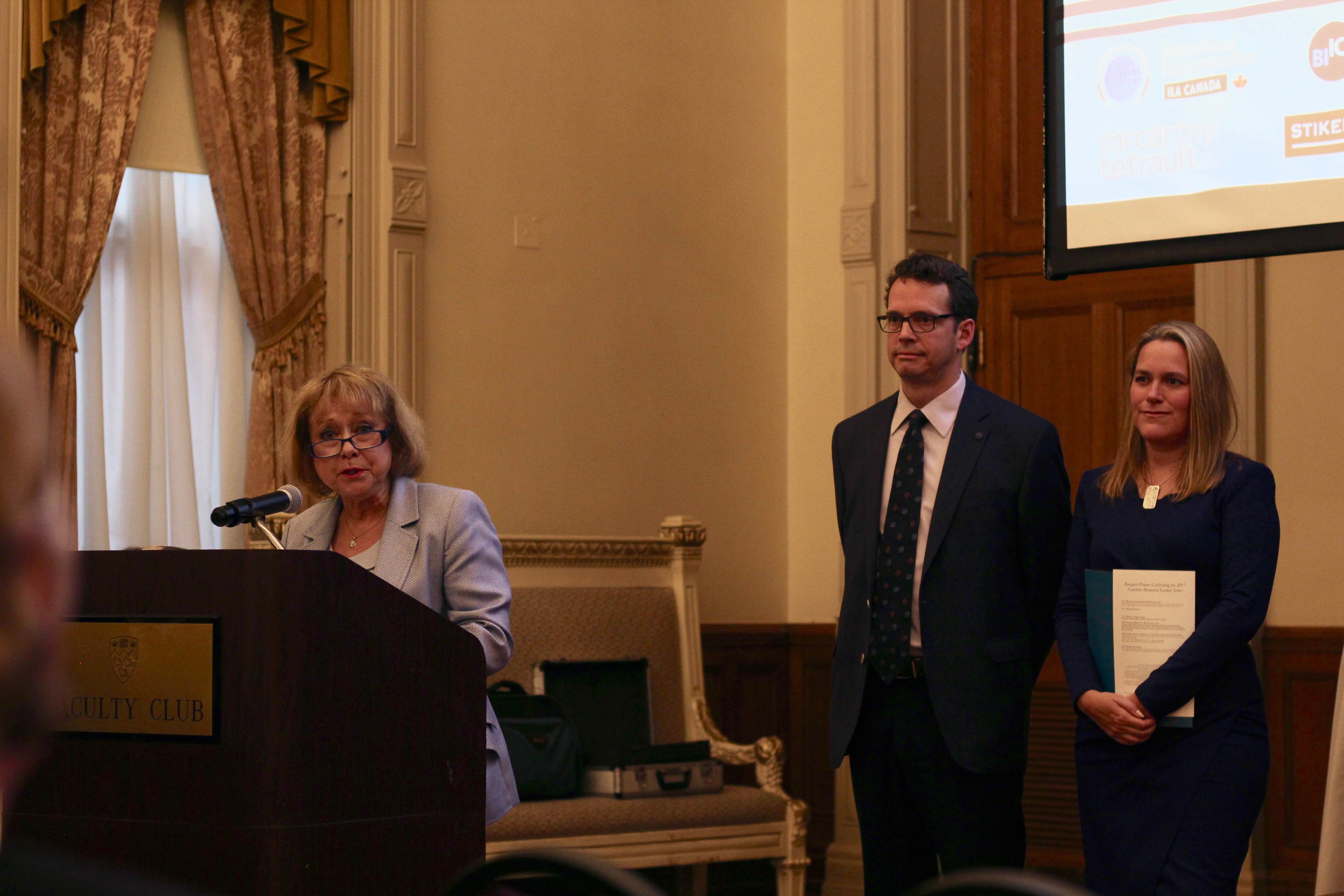In a society plagued with social intolerance, discussions around the role of law, justice, and governance are gaining rising urgency. On June 24 at the Centre for International Sustainable Development Law’s second biennial Memorial Lecture for Charles D. Gonthier, speakers discussed these topics and more. Gonthier was a Puisne judge on the Supreme Court of Canada whose ideas continue to contribute to the sustainable development of law. Other noteworthy speakers were Irene Khan, director-general of the International Development Law Organization (IDLO), and Honourable Justice Guy Canivet, vice-chair of the International Olympic Committee Ethics Commission.
Preceding the lecture, Honourable Nicole Duval Hesler, Chief Justice of the Court of Appeal of Quebec delivered an opening address highlighting Gonthier’s principal values. He served during the interpretation of the Charter of Rights and Freedoms, a set of rights entrenched in the Canadian Constitution. Gonthier’s ideas helped navigate the tension between liberty and equality that arose from the Charter.
“For [Gonthier], the key to reconciling individual interests and collective goals lies in the notion of fraternity,” Hesler said. “Fraternity is the forgotten element of democracy [….] It is the glue that binds liberty and equality to a civil society.”
Following the opening address, Khan delivered a lecture on how access to justice can empower people in poverty by helping them combat inequality. In particular, Khan elaborated on how solidarity for individuals with low income is especially important in a world of conflicts, inequalities, and extremism.
“Populist politicians are exploiting the anger of those who feel left behind,” Khan said. “It seeks intolerance, polarizing our societies. At a global level, the world is sharply divided along lines of politics and economy.”
In a divided world, however, Khan emphasized the significance of incredible agreements between world leaders to adopt sustainable development measures, notably the 2030 Agenda for Sustainable Development, a commitment between member states of the United Nations to improve the security of people and the planet.
“The Agenda seeks to align the objective of eradicating poverty and reducing inequalities among the present generation, with the goal of preserving ecosystems and natural resources,” Khan said. “The access to justice and the rule of law are also explicit objectives in the Agenda.”
Khan provided a brief explanation of the IDLO’s current work with local actors including lawyers and domestic organizations to help improve the criminal justice system. The organization also aims to increase transparency of the judicial process through digitization of court materials. For example, court documents and procedures are to be uploaded to online databases for public access.
“Ordinary people understand much better what is at stake,” Khan said. “Just look at the cases before the Supreme Court across the border [in the U.S.] on travel restrictions and possibly health care. Due process is a given, but justice is not.”
Concerning the future development of law, Justice Canivet emphasized the importance of collective action in achieving progressive objectives like the preservation of ecosystems, democratic governments, and international justice.
During the closing remarks, David Lametti, Parliamentary Secretary for Innovation Science and Economic Development discussed aspects of a “good” society. In particular, he examined the way justice is able to hold various policies together, no matter their origins.
“[Justice] is an animating theme horizontal to various groups in society, as well as an intergenerational and longitudinal element that connects the past and the future,” Lametti said.
In addition to the international speakers, the memorial lecture also attracted a diverse group of attendees. Carolyn Phan, a research assistant at the Université de Montréal, felt that the lectures echoed her own ideals.
“The [speakers’] experience and analogies were so insightful and eloquently put,” Phan said. “I think it really encourages the community to come together and achieve the collective governance that they talked about, and to mend the current political and socioeconomic gaps.”







